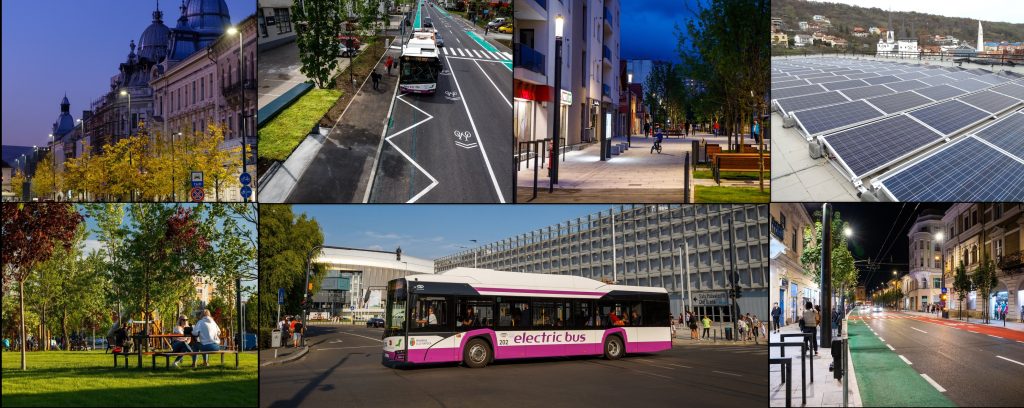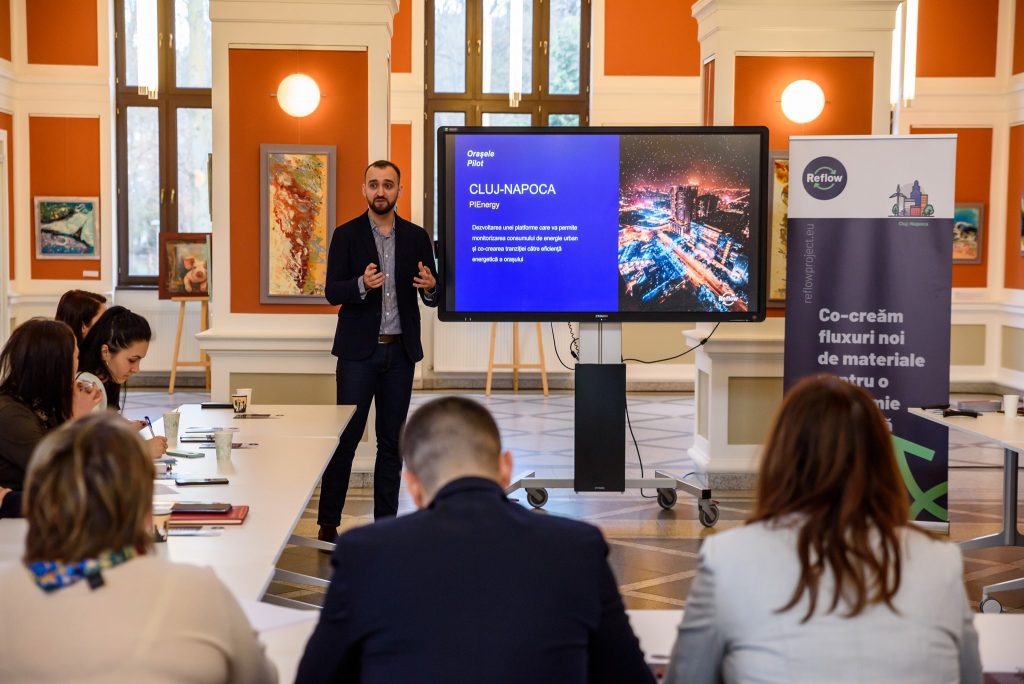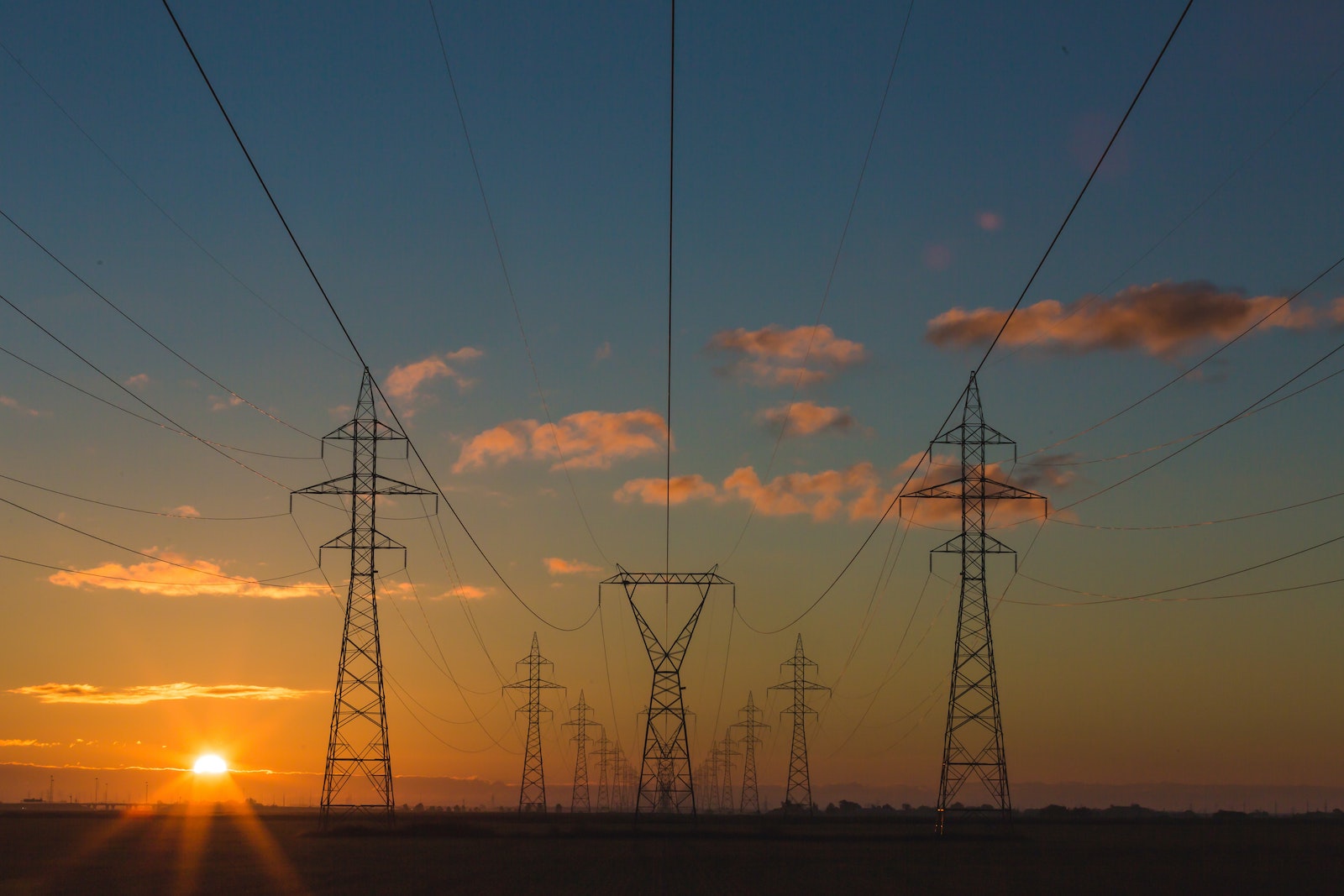2020 challenges as opportunities for Cluj-Napoca’s SMART Energy Transition
Meet the Cluj-Napoca REFLOW Pilot
The Cluj-Napoca REFLOW Pilot
While the coronavirus (COVID-19) pandemic has slowed down economic activity, it has not slowed down the efforts for a collaborative, systemic, sustainable and innovative design for Cluj-Napoca’s energy transition.
PLEnergy
2020 has been so far and continues to be, a challenging year for all the partners involved in the ambitious Cluj-Napoca Pilot within the REFLOW project. Having started an ecosystem-based effort to problematise, create awareness, pool resources, identify lighthouse practices and policies that could enable the city’s energy transition and efforts to adopt circular economy practices, the pandemic challenged us by decreasing the space for public multi-stakeholder dialogues. We experienced additional pressure on businesses to survive and thus a focus less on sustainability and innovation. Further, we saw the rise of emergency policy-making agendas rather than building policy for long-term structural change which support the circular economy. However, at the same time, it also created an increased awareness and focus towards the need to manage resources and local resources wisely, to fully innovate and create solutions that use state-of-the-art and often digital and remote technologies and to adopt a collaborative attitude and long-term, risk-including planning. This blog post illustrates our efforts to navigate this context, in the framework of REFLOW and to increase awareness and to plant seeds for policy and solutions in the energy efficiency sector in Cluj Napoca.
Why we’re here
Cluj-Napoca Pilot is comprised of a consortium of three local actors, the Municipality of Cluj-Napoca, ARIES Transilvania and INCDIM all deeply committed and engaged in the processes of innovative and sustainable development of one of Romania’s (and of Europe’s) most performant cities. Our pilot city is involved in REFLOW to contribute with innovation, research and technical capacities towards designing models for circular economy transition, to share and adopt practices from partners and to contribute to the Energy Efficiency ‘chapter’ of our project. Through this, we aim to reduce capacity and awareness discrepancies among our ecosystem and to enable a truly collaborative effort for a coherent transition towards a circular economy at the European level. Although we are perhaps one of the least known ‘champion’ cities in Europe, we decided to focus on Energy as it is one of the foci at our city level but also as it is one of the key flows to understand, map and innovate both at the macro and micro levels in Europe. The impact of increasing the circularity of material flows at the energy level is both immense and fundamental to other material cycles. It is often difficult to make an argument for example for re-cycling, reducing and up-cycling plastics whereas all the industry that is involved in producing plastics is sub-standard in terms of emissions and sustainability. Plus, in Romania for a variety of reasons, which we invite you to explore further in our posts, we produce less waste in our material flows than other cities, hence our reasoning for targeting energy transition. Cluj-Napoca is part of the European urban texture and therefore we strive to align ourselves with the objectives set by the European Union. In the context of the newly assumed Green Deal, REFLOW is only one of the projects that can support Cluj-Napoca in its efforts to decipher the challenges of the future.
What our pilot is doing for the circular economy
Cluj-Napoca Pilot is contributing directly to the mission of REFLOW (which is to show how rethinking our economy and configuration of the urban metabolism can enable the transition to circular and regenerative cities) by creating the awareness needed to re-think urban energy efficiency metabolism and also by creating in some cases, policy and technology infrastructure and capital of awareness and trust in the educational and business sectors. What this means in practice, is that we are mapping and consulting with the relevant actors that position themselves at the intersection of circular economy and energy sectors. We are conducting dialogues which result in conceptualising and advancing policy proposals and technology prototypes. This means we are gathering stakeholders in dialogues which aim both at increasing awareness, building trust and generating/consolidating partnerships that are needed to fulfil our long-term vision. More concretely this means mapping, studies, prototyping of solutions, testing of solutions, workshops (or webinars in the current context) and sometimes enthusiastic calls sometimes fear and frustration of not getting it right. For sure we have some news though to share with you. We refer here to ICT solutions for energy efficiency (eg. Retrofit kit and Energy Efficiency Software currently planned and will be implemented at the Dormitory building of „Energetic” Highschool of Cluj-Napoca) that save up some money from your electricity bill. Also, we talk about an Energy Efficiency solution that is currently researched and designed to “grow and bloom” in our public space. And, at the intersection of policy and infrastructure, we started conversations related to planning an Energy Dispatch that could model how large actors in the city are managing their energy wisely.

Our objectives
The Pilot will conduct energy consumption analyses of municipality-owned buildings and public lighting hubs who have invested in energy efficiency. Our aim is to observe the impact and the potential of circular economy-like actions for Cluj-Napoca energy efficiency practices. In the short term, the Cluj-Napoca Pilot aims at increasing awareness and engagement from different categories of stakeholders about circular economy concepts and possibilities and also at increasing the solution base for energy efficiency both in policy and technology senses. We are trying to engage a wide spectrum of actors (policy-makers, large energy companies, businesses, researchers, academia and citizens’ representatives) in dialogues in order to increase the adoption of circular economy practices. Also, this means that each of the project partners works toward ideating solutions for policy change, for public renewable energy systems and for business models that could represent an infrastructural base for wide-scale sustainable and circular energy transition in Cluj-Napoca, which is the long-term goal.
How you can get involved
As we work with a wide spectrum of actors, there are many possibilities to join these efforts both by local and international actors. Taking part in the dialogues, workshops and ideation sessions is a first step where we would welcome participation. We welcome and provide an open ground for those who want to test and prototype innovative solutions related to energy efficiency. Currently, for example, we are working on implementing energy efficiency solutions to public buildings with the aim to demonstrate and measure the economic and social benefit of such practices. Simultaneously, we are building the capital of awareness, trust and engagement through holding (online) events and dialogues which involve citizens, businesses and educators. As our mayor, Mr Emil Boc stated – “ECO not EGO! We all have to do our part in order to progress. We have to encourage our citizens to change their habits and guide them to take more responsible and sustainable decisions for the wellbeing of the city.” This is where we would welcome to combine home-grown ideas with ideas and practices developed internationally, particularly from our REFLOW partners. And certainly, we would be glad to contribute with our expertise and experience to our partners’ pilots.

Who we’re collaborating with
As a Pilot team, we already represent a wide range of actors in the energy efficiency ecosystem, namely local public authorities, businesses and research institutions. Aside from these, we are constantly reaching out to connect with citizens, with academia and education institutions so that we embed awareness and circular economy practices at all levels of society, marking our city’s SMART energy transition. Furthermore, we hope that REFLOW will mark a strengthened connection between our local ecosystem and similarly ambitious projects across Europe.
Get in contact with the Cluj-Napoca pilot team at clujnapoca@reflowproject.eu
